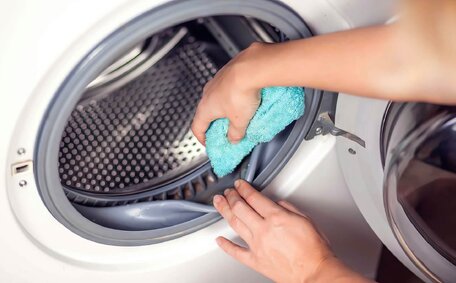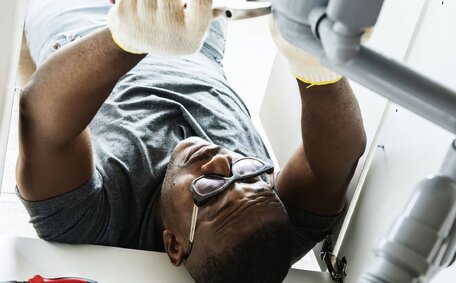Introduction to hot water system troubleshooting
As experienced plumbers serving Cambridge Park and surrounding suburbs, we understand the frustration often associated with hot water system problems. Experiencing hot water problems can significantly disrupt daily life. This article delivers practical advice for troubleshooting frequent hot water issues, from minor leaks to full system failures, assisting homeowners in swiftly solving common problems.
We’ll explore key issues that may hinder your hot water system’s performance.
Drawing on our extensive experience, we equip readers with straightforward DIY diagnostic tips and advise when to call a licensed plumber. We center on enabling homeowners to quickly and safely fix prevalent hot water system problems.
Continue reading to learn what to check if you encounter issues such as no hot water, insufficient heat, low water pressure, unexpected noises, error codes, and other system problems. As your local hot water specialists, we’re here to ensure you need get no further than your tap for reliable hot water.
No hot water: Causes and solutions
There are several common reasons why you may have no hot water:
- Power outage - Ensure your heater is receiving power. Reset any tripped circuit breakers or clear a clogged strainer valve if necessary.
- Pilot light out - If you have a gas system, the pilot light may have gone out, especially if it’s been windy. Follow the manufacturer’s instructions to carefully relight the pilot light.
- Faulty heating element - Electric hot water heaters rely on internal heating elements to warm the water. It may be necessary to replace one or more components to restore proper function.
- Your thermostat issue - Make sure your hot water system thermostat is functioning correctly, set it properly (50-60°C) and check it isn’t faulty.
- Pressure relief valve open - Excess pressure can cause this safety valve to automatically trigger. Confirm that it hasn’t been triggered by a malfunctioning valve or excessive system pressure.
- Faulty gas control unit - In gas water heaters, these components regulate the gas flow crucial for the system to supply water effectively. Have your gas hot water system analysed if you smell gas even when the pilot light is on.
When your water supply seems adequate but your hot water system is functioning improperly with no hot water - call your licenced plumber for assistance. Intermittent hot water could mean a warning of early system failure.
Not enough hot water: Troubleshooting insufficient supply
There are a few potential reasons your hot water supply may be insufficient:
- Your hot water supply can be quickly depleted by a spike in demand from showers, washing machines, dishwashers, and other appliances. Check your usage and stagger appliance use.
- Insufficient system capacity may fail to provide enough hot water for back-to-back long showers. If the water takes too long to heat up, you might consider upgrading to a larger system.
- Thermostat set too low - Ensure it’s between 50-60°C to optimise hot water production.
- Scale can build up in hard water areas within heating elements/coils. De-scale annually.
- Inspect your hot water system for leaks that waste water and inflate bills. Verify that all fixtures are properly sealed.
- Old unit - after 10-15 years, reduced efficiency might stop your hot water system working at its best. Decreased efficiency results in reduced hot water output.
If none of the above apply, consider that your hot water system may require replacement. Contact our team - we can inspect your system and provide quotes for repairs or upgrades if needed.
Water temperature too hot or too cold: Adjusting your system
It is essential to maintain a comfortable balance, avoiding extremes of hot and cold water for daily use. Water heated above 60C wastes energy and poses a scalding risk. Conversely, struggling with water that’s too cool, under 50C, hinders your chance of a nice hot bath.
First check your hot water system’s thermostat is set between 50-60C. If adjusting the thermostat doesn’t resolve temperature issues, potential causes include:
- Failed thermostat - A temperature that’s too high or too low without adjustments indicates it needs replacing.
- Scale build-up - can caused issues with proper heat transfer and lead to inefficient water heating. Descale electric element or coils.
- Uninsulated pipes - Insulate all accessible hot water pipes to optimise the water flowing efficiently for better heat retention.
- Incorrectly sized system - Get a system check from professionals to ensure it suits your home’s requirements.
For accurate calibration and ensuring the water coming from your system isn’t working below par and is at the optimum temperature, contact our team at Cambridge Park Plumbing. As licenced experts, we can carry out any required repairs, replacements or upgrades to keep your hot water safe and comfortable year-round.
Leaks: Identifying and repairing hot water system leaks
Early detection and repair of leaks are crucial in preventing significant water damage and gas leaks. Regular inspections of your tank’s perimeter for puddles, moisture, mould, or stains can reveal leaks. Be vigilant for water leakage or the smell of gas, as both indicate potential issues with your system.
Find out how common hot water system leak locations include:
- Inlet and outlet pipes
- Pressure relief valve
- TPR valve
- Drain valve
- Heat exchanger coils
- Tanks seals
For minor leaks, carefully tighten any loose fittings or valves if easily accessible. Wipe dry the unit and monitor closely for recurrence. To prevent further damage if leaks persist or seem internal, switch off power and water to the system and call a licenced plumber immediately.
Some leaks require full part replacement such as corroded/cracked pipes, broken valves or a leaking tank. For significant leaks or if your system is over 10-15 years old, replacement might be a more cost-effective solution compared to repeated repairs. As hot water specialists, we’re happy to inspect your system and provide repair or replacement quotes.
Water quality issues: Discolored or smelly water
Discoloured or foul-smelling water your system produces is often a sign your hot water system may have internal quality issues. Sediment buildup, corrosion, and bacterial growth are some common culprits.
To prevent sediment accumulation, flush your water heater annually by attaching a hose to the drain valve and allowing water to flow until it runs clear. Replacing the magnesium or aluminium anode rod every 5 years will also minimise corrosion and bacteria.
Sudden discoloration or foul odours can signal more serious problems. Rusty-coloured water suggests corroded pipes or tanks, requiring inspection. A rotten egg smell indicates bacteria buildup and systemic disinfection is needed.
Reach out to Cambridge Park Plumbing for an expert diagnosis and solution to water quality issues.
As your local hot water experts, we can troubleshoot and remedy any hot water odour or discoloration problems through anode rod replacements, tank flushes, sanitization, repairs or full system replacements if needed.
Noisy systems: Diagnosing sounds and quieting your hot water heater
Noises like popping, hissing, rumbling, or banging coming from your hot water system can indicate underlying issues that require attention. While certain intermittent sounds may be par for the course, consistent or loud noises from your water heater typically signify a problem.
Common causes of hot water heater noises include:
- Sediment buildup - Rumbling or popping can signal deposits and debris hitting the heating elements. Flushing the system yearly prevents this.
- Gurgling or hissing noises while your water heater’s storage tank refills are normal and should diminish once the tank is full.
- Faulty temperature-pressure relief valve - Hissing or whistling from a stuck open TPR valve needs immediate repair.
- Loose piping - Rattling pipes or water hammer require inspection and tightened fittings.
Try to identify the source and cause of noises before they lead to bigger problems, such as checking if they originate from the hot water tap. Persistent banging could point to loose components within your system that interfere with heating elements and cause damage over time.
For assistance diagnosing concerning hot water system noises and restoring peace and quiet to your home, contact our team at Cambridge Park Plumbing. As licenced technicians, we have the expertise to remedy any hot water heater issues through repairs or full replacements if needed.
Troubleshooting electric hot water heaters
As electric hot water system specialists, we commonly address homeowners’ concerns. We’ll explore prevalent electric water heater issues and potential fixes.
No hot water
Initially check the power supply, then inspect the thermostats and heating elements.
Reset the circuit breaker or replace any blown fuses if necessary. Professional replacement is required for faulty or damaged components.
Not heating properly
Electric elements are essential for water heating inside the tank. Built up sediment can also reduce efficiency over time. Annually drain 1-2 buckets from the relief valve to prevent sediment build-up. If flushing doesn’t restore heating capacity, the elements themselves likely need replacing.
Leaking water
Leaks usually stem from loose inlet/outlet fittings, pipe corrosion, or a faulty TPR valve. First, try tightening the fittings and then keep a close watch. If leaks continue despite tightening, shut down your power immediately and call a licenced electrician to prevent electric shocks.
For additional troubleshooting assistance or quotes on repairs and upgrades, contact Cambridge Park’s licenced electrical specialists here at Cambridge Park Plumbing. With decades of experience, we can diagnose and get your hot water working, resolving any electric system issues.
Gas hot water systems: Pilot lights and gas supply
Instant gas hot water systems use a pilot light to ignite the burner and heat the water. A common issue which can perplex homeowners is the pilot light going out, halting their hot water supply. Primary reasons for pilot light failure include:
- Strong winds blowing out the flame
- Dust or debris blocking the pilot
- Failed thermocouple not signalling gas release
Clear any debris or dust, then reignite per instructions or call a gas fitter if needed. Also assess other gas appliances like stoves to ensure they still work and thus rule out broader gas supply problems.
Discolouration or flickering suggests a blockage or gas issue. Check for a blue flame at the pilot when inspecting.
Additional issues unique to gas hot water systems include:
- Temperature control problems from a faulty gas control unit
- Leaking water flow sensor or a faulty tempering valve requiring replacement
- Leaks coming your way at gas fittings, exhaust flues, or a malfunctioning flow sensor indicating worn components
For professional assistance, knowing that water heaters can sometimes be temperamental, contact Cambridge Park Plumbing. Our fully licenced technicians can inspect pilot lights, fittings and gas supply to diagnose and remedy issues through repairs or unit replacement as required.
Maintenance tips to prevent future problems
Regular maintenance helps prevent common issues and extends your hot water system’s lifespan. Simple tasks homeowners can perform themselves include:
- Check pipes and connections yearly for leaks or corrosion, tightening any fittings as needed to maintain the right temperature pressure balance.
- Drain 1-2 buckets from the TPR valve annually to clear sediment obstructing your heating elements or coils.
- Flush the water tank completely every 5 years by attaching a hose to the drain valve and running water through until clear.
- Replace the anode rod every 5 years to minimise corrosion and bacteria buildup.
- Insulate hot water pipes properly to optimise heat retention.
For comprehensive servicing of your hot waterif issues persist, contact Cambridge Park Plumbing. Our licenced technicians inspect all system components, perform necessary repairs or replacements, and help extend the operational life of your hot water unit.





